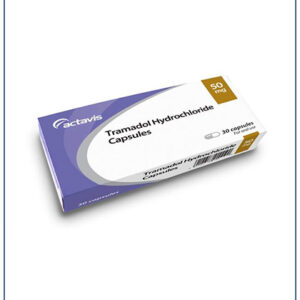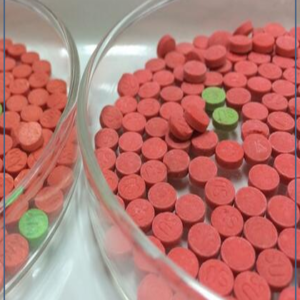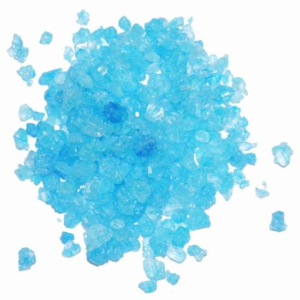What is amphetamine?
Speed, sulph, sulphate, uppers, wake ups, billy whizz, whizz, whites, base…methylphenidate, ritalin, dexamphetamine, dexedrine, methamphetamine, methylamphetamine, meth, ice, nazi crank, ya ba.
Amphetamines are synthetic stimulants. Their current medical use is limited, with only Dexedrine (dexamphetamine sulphate) currently available for use in the treatment of narcolepsy – where the patient cannot help suddenly falling asleep. The only other amphetamine-related drug available for medical use is methylphenidate (Ritalin) for the treatment of attention deficit syndrome in children (Ritalin is not strictly an amphetamine, though it is very similar in chemical structure and effects).
As a street drug, amphetamine usually comes as a white, grey, yellowish or pinky powder or as putty-like substance known as base. The purity of street powders is less than 15 per cent, with most deals having only 10% amphetamine and the rest other powders like glucose, vitamin C, laxative, dried baby milk baby, caffeine, or other drugs such as paracetamol or aspirin.
Base is stronger at roughly 50 per cent purity or more, but this is declining. A similar though some say stronger form of the drug is methamphetamine. This comes as powder, crystals (known as ice) or in tablet form.
The powders are snorted up the nose, mixed in a drink or, by some heavy users, prepared for injection. Base is usually swallowed or, because of its bad taste, wrapped in (cigarette) paper and bombed (swallowed). It can be snorted if dried out properly.
Methamphetamine is taken in a number of ways, depending on the form. Pills are swallowed. In the crystal form, because the salt base has been removed, it can be easily ignited and smoked (in a similar way crack is to cocaine). The powder is swallowed or snorted.
Why do people take amphetamines?
- You feel happier, euphoric even
- It increases your confidence so that you are, in fact, awesome
- It gives you a tonne of energy, so you’re really motivated to get things DONE
- You’re more alert and able to concentrate
- You talk CONSTANTLY which might annoy the people around you, but you don’t care – you’re awesome
- It makes you more desperate to have sex than usual
- It squashes your appetite, so has even been used to help lose weight
Prevalence
During the 1990s, amphetamine has been a popular drug among young people attending all night parties and dance events and is probably the next most commonly used illegal drug after cannabis.
Surveys have shown between 5 and 18 per cent of 16 year olds claiming to have used it at least once. It’s use is very much on the decline however. The 2000 British Crime Survey shows that among 16 to 19 year old, 13% had tried the drug in 2000, compared to 18% in 1998. Roughly 20% of those in their twenties have use it at least once.
Meth (or methyl-) amphetamine has become common in America and Asia. In crystal form (ice) it can be very strong, resulting a quick, hard hit when smoked. This can often lead to intense paranoia and a very unpleasant comedown. It has not (yet) become common in the UK but there have been reports of it being sold as speed in places like Glasgow and in some gay clubs. Ice tends to be sold at £25 for a large rock.
Worldwide use
According to the World Drug Report 2006, (PDF), after years of massive increases in the 1990s, the markets for amphetamine type stimulants seem to be stabilizing, reflecting improved international law enforcement cooperation and improvements in precursor control. The quantities of precursors and the number of illicit laboratories seized increased, as enforcement efforts intensified, but end-product seizures declined and the number of Amphetamine type stimulant users remained roughly stable.
UNODC’s global production estimate for ATS is at 480 metric tons, slightly higher than a year earlier, but still lower than the estimate for 2000.
Some 25 million people used amphetamines in 2004, while some 10 million people used ecstasy. More than 60 per cent of the world’s amphetamines users live in Asia while more than 50 per cent of the world’s ecstasy users live in Western Europe and North America. Annual prevalence of amphetamines use is highest in Oceania, followed by North America and East and South-East Asia. In Europe, which is home to an estimated 2.7 million users of amphetamines, amphetamine use is far more widespread than the use of methamphetamine which is limited to the Czech Republic and some Baltic States.
History
Amphetamines were first discovered in the 1800s but their medical uses were not recognized until the 1930s. Then they were used to counter low blood pressure, help asthmatics breathe more easily and suppress appetite.
Later amphetamines were prescribed for a whole range of disorders including inability to sleep, epilepsy, migraine, depression and hyperactivity in children. In the 1950s and 1960s they were widely marketed as slimming tablets.
More recently medical prescribing of amphetamines has fallen greatly although they are still used for sleep problems. Following widespread prescribing of amphetamines (or amphetamine-like drugs such as Ritalin), in America to children who have behavior problems, this type of use is now growing in the UK.
The stimulant effect of amphetamines led to widespread use by soldiers to combat ‘battle fatigue’. An estimated 72 million tablets were issued to British forces during the second World War. Many German and Japanese forces also used amphetamines and Hitler is said to have been on daily injections. This pattern of use amongst troops continued amongst the US army in the Korean and Vietnam wars. The UK Prime Minister, Anthony Eden, is reported as needing amphetamine to get him through the Suez crisis of 1956.
Cyclist Tommy Simpson collapsed and died during the 1967 Tour de France, his autopsy revealed high levels of methamphetamine in his system.
Until 1956 many amphetamine based drugs could be bought over the counter in a chemist shop without a prescription. Use among bored housewives, people who felt low and needed an energy boost (‘pep pills’ and ‘tonics’) and people who worked long hours such as long distance lorry drivers was common.
Non-medical use of amphetamines grew in the UK in the 1960s especially among teenage ‘mods’. The use of ‘purple hearts’ (a combination of amphetamine and barbiturate) by thousands of young people led to the first post war drug craze (and media drug scare) in the UK In 1964, unauthorized possession of amphetamine was banned.
In the 1970s and 1980s street use of amphetamine increased again and centered on a new generation of young people in the all night club scene of punk rock and Northern Soul. Illicitly manufactured powdered amphetamine and sniffing replaced tablets stolen from factories as the main form of use.
Effects/risks
Amphetamine and methamphetamine are stimulant drugs. They increase breathing and heart rate, lessen appetite and make the pupils widen. Users tend to feel more alert, energetic, confident and cheerful and less bored or tired. With high doses people often experience a rapid flow of ideas and feel they have increased physical and mental powers.
Like all drugs, the method taken determines how quickly and how intense the effects will be. If swallowed, the effects come on much slower and the effects less intense. If snorted, smoked or injected, the effects are quick and, depending on dose, can be intense.
“It’s a wide awake buzz. It intensifies everything. It makes me feel really confident and energetic. You don’t feel hungry and can skip sleeping. It makes me talk a lot even though it’s probably bollocks. I used to get a lot of good rushes like feeling hot and cold, your hairs standing up all over your body and your head spinning. The problem now is all the crap. Whizz can be cut with anything from baking soda to battery acid. I only buy from people I know and stuff I’ve used before”
With some people, and especially as the body’s energy stores become run down, feelings of anxiety, irritability and restlessness are common. Taking a lot, especially over a few days, can produce panic and paranoia. This usually goes once the drug is eliminated from the body. The strong ‘upper’ effect can be particularly dangerous to people who have heart or blood pressure problems.
“I’ve had paranoia experiences. You can get someone walk past you in the street and you think My God. They just looked at me. They’ve got it in for me. They’ve got my number’. It can get really scary. I’ve had bad come downs on speed. It stops you sleeping and it is literally speedy, keeping you going all the time. It doesn’t inspire me in any way. It doesn’t give you time to stop and think. You’re just moving and doing all the time. Your body tells you to sleep but your mind’s constantly on the go. And then you come right down and you are low and knackered for ages”.
The effects of a normal dose last for about 4 – 8 hours and tend to leave the user feeling tired. It may take a couple of days to feel normal again. There is a great deal of concern about the power of methamphetamine and the potential for addiction. While the effects are largely the same as that for amphetamine, the strength and the way it is taken, can make methamphetamine an intense and difficult drug to come down from. Smoking very pure crystals causes a quick and very intense high, which often can lead to strong stimulation, paranoia and a nasty comedown. Users will often seek more hits to prevent the comedown, which, when the drug runs out, can result in extreme fatigue, mood swings and paranoia. In the pill form, the effects are not too dissimilar to amphetamine, though they may be stronger and longer, lasting up to eight hours.
Regular (meth)amphetamine use can lead to psychological dependence. Users may feel depressed, lethargic, lacking in energy and incredibly hungry without taking the drug. What goes up must come down. They may be tempted to keep repeating the dose to avoid these feelings. Tolerance also develops with regular use so more is needed to get the same effect.
Heavy, regular use often leads to lack of sleep and food and lowers resistance to disease. Eating disorders, such as anorexia nervous, may become a problem, especially among women users. Normal work and domestic routines may be disturbed. Many heavy users become very run down and alternate between periods of feeling good and energetic then feeling depressed and low. Delusions, panic attacks, paranoia, a feeling of being ‘wired’ and possibly hallucinations may also follow. Some users experience violent mood swings and can become very aggressive.
“I am quite lazy by inclination and have had confidence problems at various stages of my life. Amphetamine seemed to solve both these problems. I didn’t get tired and I didn’t get self-conscious. In fact, I felt witty, energetic, powerful, amusing. For six months I thought I was God. I wrote masses, lost a lot of weight, which was bothering me at the time, and didn’t have to miss out on anything through the mundane need to sleep. The use gradually escalated until I was only sleeping about three nights a week… I woke up one day and decided I couldn’t stand it any more… There was this complete lassitude and depression in the first couple of days. I don’t think I’ve felt quite so low in my life… I could do virtually nothing, but what I would do was get up as early as possible, which effectively meant that after week two I was getting up at four instead of five, and a week or two after that, at noon. When I actually got to the point where eight hours’ sleep was enough and I could get up at 9 am I went back to work. This took about two months, but it was 18 months before I felt I was restored to the kind of human being I’d been before taking the speed.” Writer quoted in A. Tyler, Street Drugs. NEL 1986.
Injecting amphetamine is particularly dangerous. A very high dose may be taken in one go and the rubbish that is mixed with the street powder may in itself be dangerous to inject. If injecting equipment is shared, there is the risk of infection including hepatitis and HIV.











Reviews
There are no reviews yet.